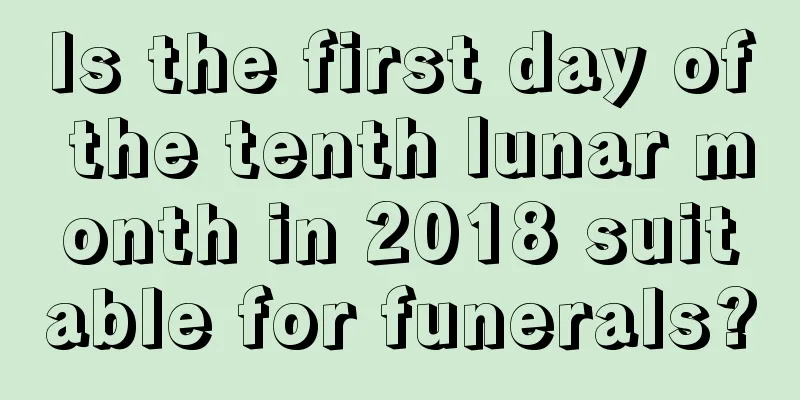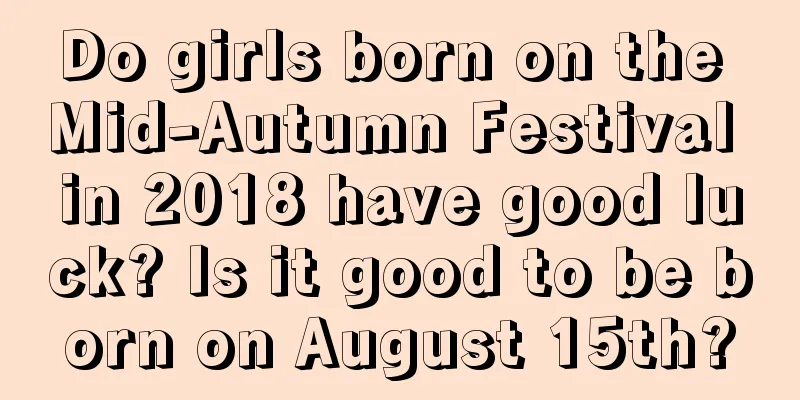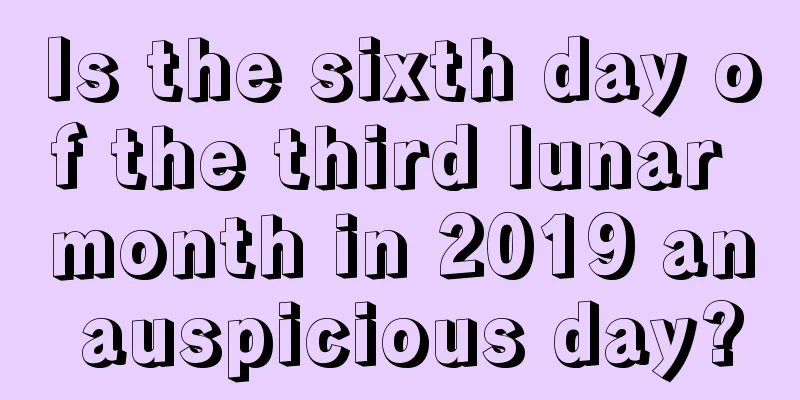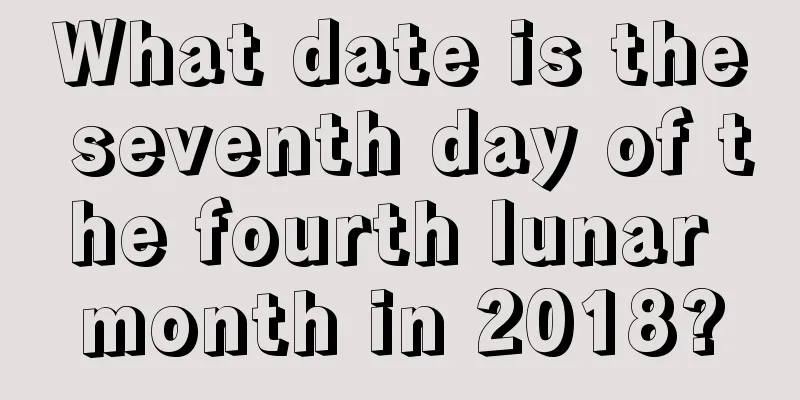Is the 29th day of the seventh lunar month in 2021 a good day to get a haircut?

In the seventh month of the lunar calendar, early autumn, the weather is also relatively hot. Is it suitable to get a haircut on July 29th of the lunar calendar in 2021? The arrival of the seventh month of the lunar calendar indicates that the scorching summer heat is gradually fading away and the heat is gradually subsiding. For more information about the auspiciousness and inauspiciousness of the seventh month of the lunar calendar in 2021, come to Shuimo.com to learn about it.Lunar seventh monthThe seventh month of the lunar calendar is the seventh month of a common lunar year and the first month of autumn, namely Mengqiu. The seventh month of the lunar calendar is also known as Qiao Yue, Gua Yue, Lan Yue, Lan Qiu, Zhao Qiu, Xin Qiu, Shou Qiu, Xiang Yue, Meng Qiu and Chu Qiu.Is July 29, 2021 a suitable day for a haircut?Lunar calendar: July 29, 2021; Gregorian calendar: September 5, 2021, Sunday, conflicting with the dog and the evil spirit of the south [suitable according to the old almanac] [Do not use it for important events on Yang Gong's taboo day] Marriage, fire, dismantling, sacrifice, pray, consecration, felling, groundbreaking, opening of the market, signing a contract, moving into a new house, setting up beds, taking in livestock, burial [taboo according to the old almanac] [Do not use it for important events on Yang Gong's taboo day] Planting, building stoves, acupuncture, traveling According to the almanac, the 29th day of the seventh lunar month in 2021 is [Yang Gong's taboo day] , so it is not a good day to get a haircut .What were the haircut taboos in the old days?Among the Han nationality and many ethnic minorities, there is a custom that prohibits cutting hair and shaving beards during funerals. When someone dies in the family, men are not allowed to have their hair cut or shave for a month or a hundred days once they learn the bad news. One of the beliefs is that hair and beard are inherited from parents, so people do not discard them when their ancestors pass away, to show filial piety and to express grief and longing. Some say that it is to recall the sadness of the deceased and not to think about tidying up their appearance to show filial piety. Others say that not cutting hair or shaving is to change one's appearance so that the dead cannot recognize them and avoid disaster. The first two statements are both related to etiquette and are relatively close, and are the spread and influence of Confucianism. The latter theory is related to the popular belief that hair and beard are related to the soul, and that hair and beard can harm one's body through witchcraft. Not only are haircuts and shavings prohibited during funerals, there are also many other taboos. For example, the Ewenki people have the custom of not getting a haircut or shaving in the afternoon. I wonder if it has something to do with the return of the soul, or maybe they are worried that getting a haircut or shaving in the afternoon will change their appearance and the soul will not be able to return to their body smoothly. The Han ethnic group also has the custom that nephews are forbidden to get a haircut at their uncle's house. It is said that if a nephew gets a haircut at his uncle's house, it will "harm his uncle." "Jiu" is homophonic with "jiu", which means old people. According to "Er Ya". "Shu" says: "Jiu means old; Gu means former. Jiugu is a term for elderly people." (See also "Baihutongyi") It can be seen that to hinder the uncle is to hinder the old, which means to hinder the elderly. This custom was once popular in the Central Plains regions such as Henan, Hebei and Shandong. It is especially taboo in the first month of the year. In the old days, many Han people also grew beards, and there was a saying that a man without a beard was not beautiful. The Hui and Dongxiang peoples in the northwest region and the areas where the old religion of Islam is popular have the custom of not growing beards, which has evolved from the old religious rules into a lifestyle habit. Han Chinese people, if their parents are still alive, it is taboo for their sons to grow beards. But if you don't grow a beard after having grandchildren, people will gossip about you again. Oroqen women braid their hair into two braids and tie them on their heads, which is a sign of engagement. It is also a sign of taboo, indicating that the woman already has a husband and cannot discuss marriage again.Do you want to know your own Bazi? Want to figure out where your golden marriage is? Click on the [Premium Calculation] below to calculate your horoscope and fortune! |
Recommend
Can I pick up my car on the Rain Water solar term on February 19, 2019? Is the Rain Water solar term an auspicious day to pick up my car?
Introduction: According to the tradition of our co...
What day is the Lantern Festival in 2022? Is there a holiday on that day?
The Lantern Festival is on the fifteenth day of th...
What are the considerations for naming a girl born in the year of Guyu in 2018 whose five elements lack water?
Introduction: A name will accompany a person throu...
Is June 17th of the lunar calendar in 2021 an auspicious day? Is it a good day to start renovation?
The entire month of June in the lunar calendar of ...
What is the ninth day of the Great Cold in 2021? What is the month, day, and time of the Great Cold in 2021?
After the Great Cold, a new year begins! When is t...
Is the day before the summer solstice in 2019 suitable for praying? Check the auspiciousness and inauspiciousness of the time before the summer solstice!
Introduction: Generally, you need to choose an aus...
What is the corresponding Gregorian calendar date for the 15th day of the fifth lunar month in 2020?
What is the corresponding Gregorian calendar date...
Companies should pay attention to these matters when raising fish
Introduction: Nowadays, many people like to raise ...
What day is March 3rd (Daughter's Day) in the Year of the Rat 2020? Is it a good day?
March 3rd has many festival nicknames: Shangsi Fes...
Where is the God of Wealth on the first day of the Lunar New Year in 2020? Should we worship him?
The first day of the first lunar month is the fir...
Where is the direction of the God of Happiness on the sixth day of the tenth lunar month in 2018?
The sunshine in October of the lunar calendar is ...
Is the Dragon Boat Festival in 2019 a suitable time to burn incense? Can tablets be placed on the Dragon Boat Festival in 2019?
Introduction: In the traditional culture of our co...
Is April 19th of the lunar calendar in 2017 a good day to get married?
Introduction: Getting married is one of the happie...
Is the Cold Clothes Festival on the first day of the tenth lunar month in 2017 a suitable date for burying the deceased?
Introduction: In our country's traditional cus...
Is it okay to get engaged on July 16th, the day of the Beginning of Heat in 2021? What's the omen for this day?
July is coming in early autumn. Do you want to kno...









